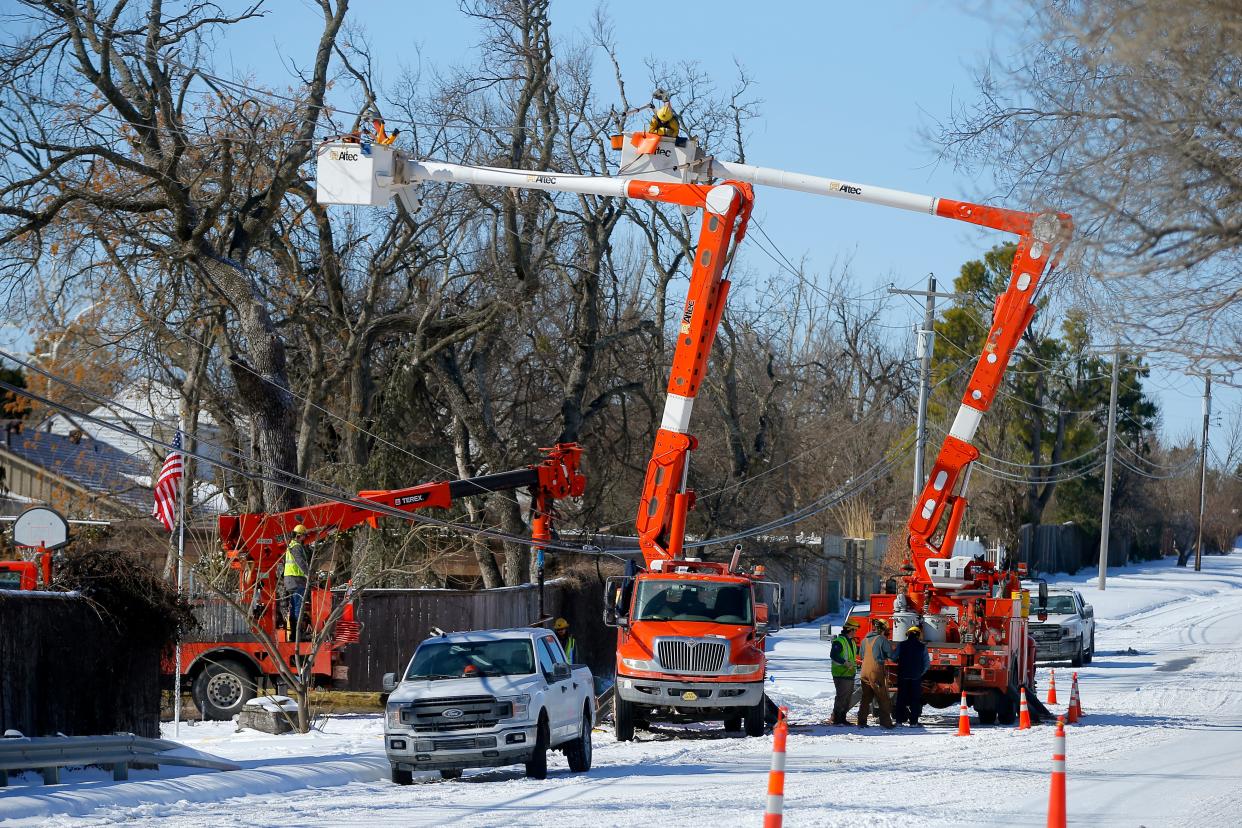OK legislators examining whether to change the way electricity rates are approved

State lawmakers are poised to take another shot at making major changes to Oklahoma's public utility rate-making process next year, following a legislative hearing held earlier this week.
That hearing, held Monday by the House Utilities Committee, examined the idea of moving the current process for setting electricity rates to a "performance-based system." Under such a system electricity rates would be reviewed on a smaller annual basis by the Oklahoma Corporation Commission, with a major rate review every five years. Currently, the commission reviews electricity rates when it is considered necessary.
Natural gas utilities already use the performance-based system.
In August, the state Corporation Commission filed a notice of inquiry seeking public input about adopting a performance-based rate-setting system for electricity. That request drew many responses.
Two of the state’s largest investor-owned utilities, Public Service Company of Oklahoma and OG&E, are asking the state to make the change. In its response to the commission, PSO wrote that “the current process is lengthy, costly and litigious and is not conducive for collaboration or innovation.”
More: Edmond water bills continue to increase as reported line breaks climb
The current gap between incurring costs and having an opportunity to recover those costs, the utility said, creates a barrier to making investments needed to ensure continued reliability, safety and security of the grid. "It also results in higher customer bill impacts rather than gradual, pay-as-you-go increases," PSO said.
Former Corporation Commissioner Jeff Cloud, executive director for Alliance for Secure Energy, told lawmakers a performance-based rates created more stability for utilities and customers by substituting smaller annual rate adjustments for “larger ones at different times.”
The U.S. government, however, disagreed.
Detailed in a 58-page response to the commission’s notice of inquiry, Maj. Leslie Newton, the attorney for the Federal Executive Agencies — a collection of all federal agencies who receive utility service in the state — urged the commission “to continue Oklahoma’s current and traditional method of rate making as this method is shown to adequately protect the interests of all parties, both utilities and customers.”
“Utility costs, particularly electricity costs, represent one of the largest variable expenses of operating the Federal offices, facilities, and installations and a change in how the rates for these utilities are approved by the Commission could have a significant impact on the interests of all FEA’s customers including our Oklahoma military installations,” Newton wrote.
Representatives of the oil and gas industry, echoing the federal government, said there was no need to change the current rate-setting system. “The Petroleum Alliance believes that alternative regulation is a solution in search of a problem," wrote J. David Jacobson, an attorney for the organization. “As such the Petroleum Alliance urges the commission to continue to apply the tried-and-true methods available under traditional ratemaking and modify those methods in an incremental matter if needed, rather than implement unnecessary and risky (for ratepayers) alternative regulation mechanisms that will harm Oklahomans.”
The interim hearing comes after at least two attempts this year by state lawmakers to change the rate-setting system in the spring. During the 2023 legislative session, Senate Bill 1103 would have changed the process to a performance-based system. The bill also would have required OG&E to have more stored fuels on hand for future winter storms. That measure did not clear the Legislature.
A second bill, Senate Bill 694, was amended in the House during the spring to change the rate-setting system. That bill, too, is currently dormant. Lawmakers will return to the Capitol in February for the 2024 legislative session.
This article originally appeared on Oklahoman: Electricity rates may be reviewed more often under new plan suggested
